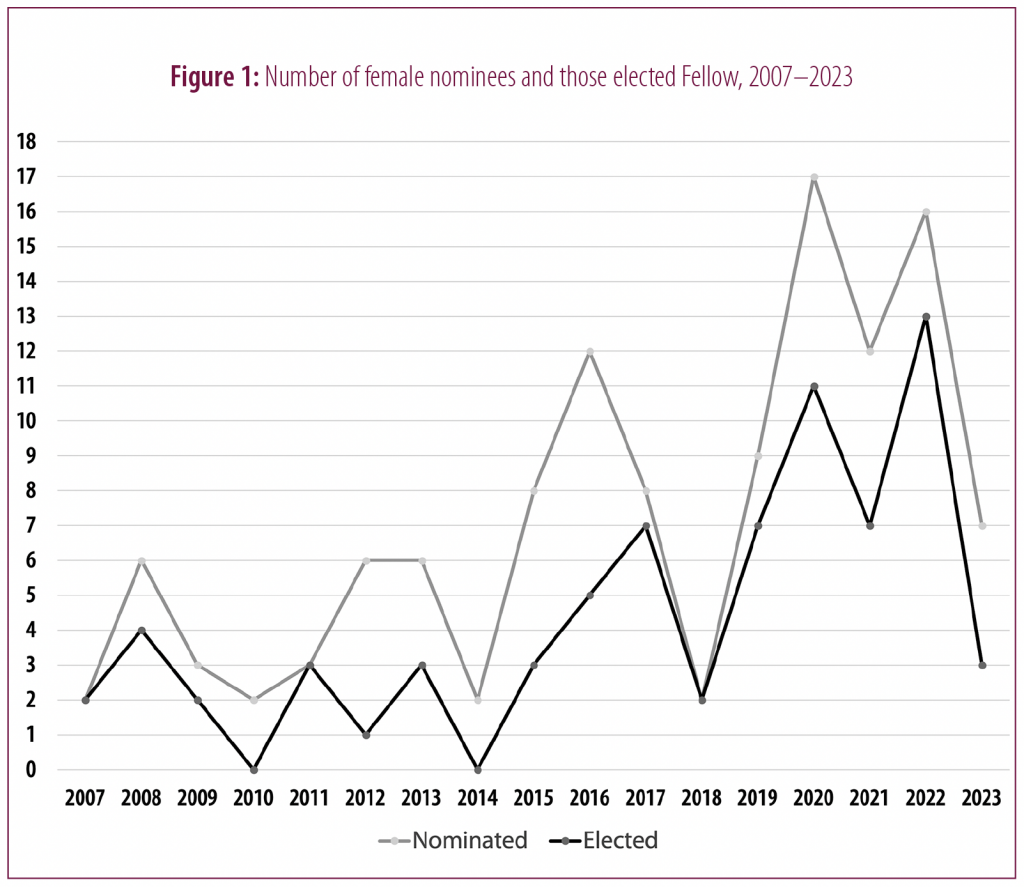IMS President Peter Bühlmann comments on the IMS Fellowship elections, and our new class of Fellows, announced here:
I would like to extend my warmest congratulations to the newly appointed IMS Fellows for their outstanding achievements. I am truly delighted to see that IMS has 27 new and stellar Fellows who will undoubtedly continue to shape the future of statistics and probability.
While we celebrate the accomplishments of the newly appointed Fellows, which is the most important thing, we must acknowledge that the class of 2023 IMS Fellows lacks diversity in certain ways. I would like to provide some numbers and facts to bring attention to this matter, also recognizing that this is only the beginning of the conversation. I invite you to read an upcoming article in the October/November issue of the IMS Bulletin, which will explore ways to increase diversity in the nomination pools for IMS Fellows and other IMS Awards.
This year, 55 people were nominated for IMS Fellowship. Among them were seven female nominees. The classification into the different fields was as follows: 45 in statistics, two in probability and eight cross-disciplinary (the nominator could indicate one or more research areas out of these four categories: statistical theory and methods / applied statistics / probability theory and methods / applied probability). There was no female nominee in probability nor in the cross-disciplinary field, all seven are working in statistics. In terms of geographical spread: seven in Europe and the Middle East (Germany, Greece, Israel, Italy, Switzerland, UK); three from Australia; seven from Asia (China, Hong Kong, India, Singapore); and 38 from North America (Canada, USA).
Out of the 55 nominations, 27 were selected as IMS Fellows: three women (all from statistics); 21 working in statistics, one in probability and five in a cross-disciplinary field. In terms of geographical regions where the Fellows work and live: six from Europe and the Middle East, one from Australia, one from China, and the remaining 19 from North America.
We have data from previous years on the percentage of nominees who identify as female. The following quantiles represent the range for the years 2007–2023: minimum (4.2% in 2007), lower quartile (7.3%), median (12.8%), upper quartile (16%), and maximum (24% in 2016). For 2023, the percentage is 12.7%. Furthermore, the figure below reports the numbers of nominated and elected Fellows who identify as female.

As a reference, the 2021 Survey on the IMS Membership reports the following numbers among the respondents: approximately 20% females; 64% work exclusively in statistics, 11% exclusively in probability and 25% cross-disciplinary (the distinction between the different categories is not sharp); 3.3% from Africa, 21.4% Asia, 16.5% Europe, 55.2% North America, 2.1% Oceania, 1.4% South America. More precise information is available here.
While I won’t provide interpretations of these numbers, I do believe it’s crucial to emphasize the need for diversity in award and honor nomination pools. This is key to maintaining the high level of prestige associated with these distinctions, as well as ensuring the well-being of IMS. Stay tuned for the upcoming October/November issue of the IMS Bulletin, where we will share our thoughts on this important topic.
Once again, congratulations to the new IMS Fellows!